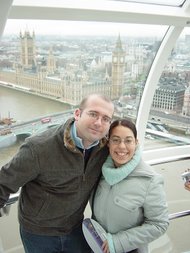After a couple of weeks of information gathering it's time to draw out a few initial conclusions. Politicians and those involved in political communications, like everyone else interested in communicating with the wider public, seem to view the arrival of new technologies as a great opportunity to engage, or re-engage the public. Many of these potential opportunities emerged early on from the discussion at Good Relations but also from many of the other sources.
They include opportunities for direct communication, without the mediation (manipulation?) of journalists, the ability to gauge public reaction to issues before determining policy or legislation – effectively expanding the focus group concept, the ability for smaller parties to either set the agenda for a political debate or to have their views on an ongoing issue better heard and, finally, the opportunity for MPs to increase contact with their constituents. Using new technologies also allows political parties the opportunity to communicate with those audiences (generally younger individuals) who tend not to use traditional media or to be very interested in news and politics.
Identifying the potential opportunities seems however to be as far as we have got. How are politicians going to make their content interesting enough to attract the audience that uses social networking sites or reads blogs? Many of the most famous blogs or other internet based political communications have achieved their notoriety after being lampooned in the traditional press for their attempts at trying to look modern. Furthermore, blogs such as the Guido Fawkes one may be fascinating for those who are interested in politics already but hardly seem to be attracting a wider audience. The idea of a web based TV station for the European Parliament, mentioned by MEP Joseph Muscat, raises the same problem. The station would give more people the opportunity to view the Parliament’s deliberations but how many people will bother to tune in? A look at audience figures for the BBC’s parliamentary channel should provide a good idea! With so much happening on the web, how are politicians going to make their voice heard?
Wednesday, 10 January 2007
Subscribe to:
Post Comments (Atom)


2 comments:
I think that adequate usage of new media and blogging in politics will influence the public opinion in the near future, primarily in the USA and the UK. If we take a look at history of media, press and television had similar effects. Repeated names and faces cause familiarity within the public, and when the public gets used to a political figure (his face, speech, image), I guess the chances for victory for that politician are getting bigger. Clearly, the communication apparatus between the traditional and new media is different. New media forms like blogs are interactive. Transparency and direct communication are their key features. So the visionary politicians (or the ones who have terrific press officers and advisers) are working on their blogs and interactive personal web-sites.
Its interesting that politicians here in the UK would have a blog or even websites! In the Pacific, this would never cross the minds of politicians. I guess a reason for this is that majority of the population have access to traditional rather than new media. Maybe given time, who knows things may change.
Post a Comment